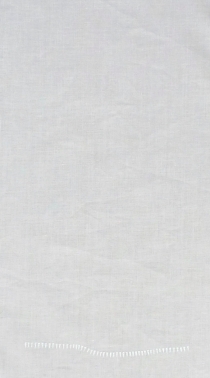
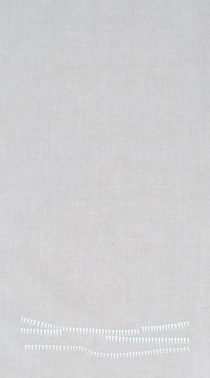
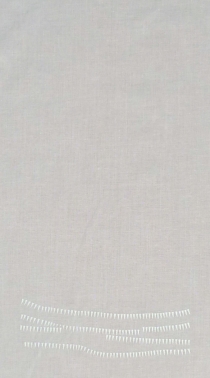
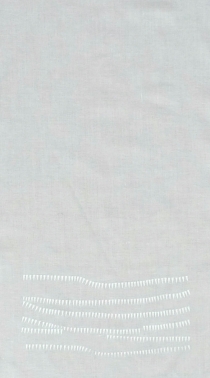
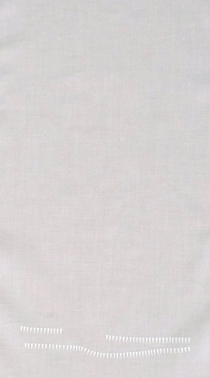
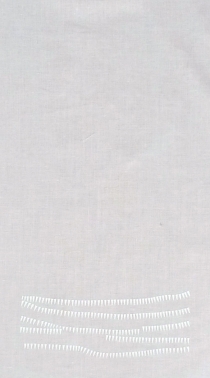
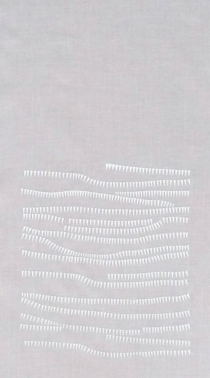
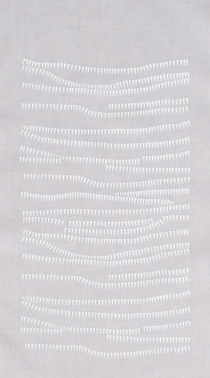
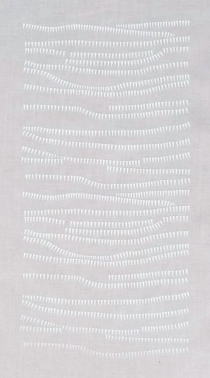
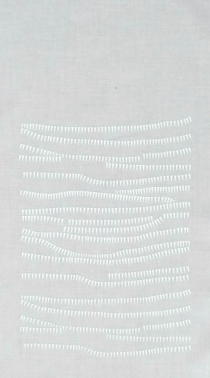
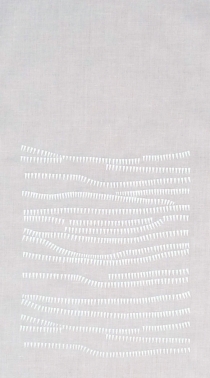
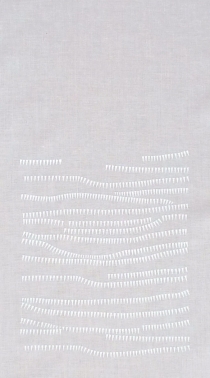
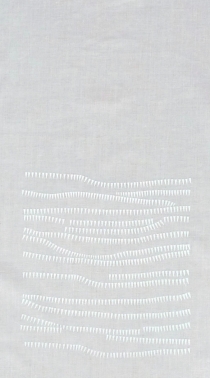
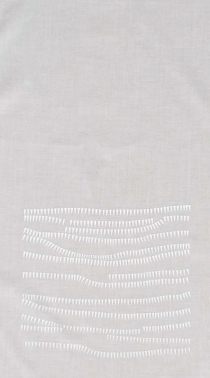
19/20.TRFCCC.1-14.2011
The Rise and Fall of China Clay is a set of 14 prints created especially for the Clay Dryers exhibition. Referencing the diagrammatic interpretation for slopes from Ordnance Survey maps, for the contours of the St. Austell china clay pits, the prints plot the rise and fall of china clay production from 1827 to 2007. Printed with white china clay onto white cotton, a product that's high in kaolin (or china clay) content, the designs subtly reference the rise and decline of this once thriving industry.
Clay Dryers was an exhibit, as part of Cornwall Design Season 2011 that took a story, nominated by MJ Long and interpreted the development of clay dryer technology that impacted on the sociopolitical and economic development of Cornwall over the last 200 years.
Clay Dryers was an exhibit designed by Kathryn Tyler, Nick Raven and Sophie Tarbuck at Events Square, Falmouth 26th March - 25th April. It was sponsored by Falmouth Festivals Ltd, Blake Construction and Imerys.
All rights reserved.
Copyright © Sophie Tarbuck.